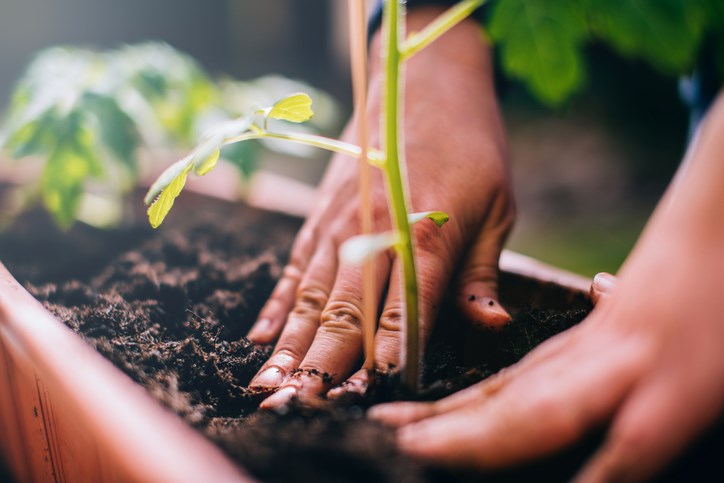With the summer officially underway, Canadians turn their attention to activities that they were forced to avoid, either due to weather or the pandemic. At a time when almost four in five adult Canadians have received their first shot of the COVID-19 vaccine, planning an outdoor barbecue or get-together is more plausible than it was a few months ago.
May’s Victoria Day weekend marks the start of gardening season across Canada. When Research Co. and Glacier Media asked Canadians about their habits, more than three in five respondents (63%) said they currently grow or cultivate plants in their home, either indoors or outdoors.
Women are more likely to be interested in home gardening (68%) than men (57%). While just over two thirds of Canadians aged 55 and over are growing or cultivating plants (68%), the proportion falls to 63% among those aged 18 to 34 and to 57% among those aged 35 to 54.
Interest in home gardening diminishes as we travel eastward. While 67% of British Columbians and Albertans are currently growing and cultivating plants at home, the numbers are a tad lower in Saskatchewan and Manitoba (65%) and Ontario (64%) but drop significantly in Quebec (59%) and Atlantic Canada (53%).
In the early stages of the pandemic, Canadians who were confined to their homes found different new ways to entertain themselves. Some of these activities involved food, as outlined by the hundreds of social media posts devoted to pictures of baked goods, stores unexpectedly running out of flour bags and the entry of the phrase “sourdough starter” into our vocabulary.
We could have expected the number of Canadians growing vegetables at home to be larger this year, but this is not the case. Across the country, just over one in four Canadian home gardeners (27%) say they mostly grow plants for consumption. A larger proportion (39%) say they grow or cultivate plants at home mostly for ornamental purposes, while one third (34%) say they are equally interested in both.
There is an interesting variation across ethnic groups when it comes to our main motivation for gardening. More than half of home gardeners of East Asian descent (52%) are primarily preoccupied with flowers and foliage, while 44% of those of South Asian descent focus their attention on vegetables, fruits and herbs.
The interest in growing food at home—but not flowers—is especially high among Canadians aged 18 to 34 (32%), Atlantic Canadians (40%) and Quebecers (31%).
A question of investment reveals some differences on what Canadians consider a suitable expenditure for this hobby. One in four Canadian home gardeners (26%) say they spend less than $50 on gardening tools, plants and/or seeds each year, while more than a third (37%) devote anywhere from $50 to $100 on an annual basis.
Some Canadian home gardeners appear to have deeper pockets, with 23% saying they devote anywhere from $101 to $199 a year, and 14% who spend more than $200 to get their gardens going each year—a proportion that reaches 23% among those in the highest income bracket.
There is also the issue of bragging rights. Just over three in five Canadian home gardeners (61%) describe the plants they grow or cultivate as “about the same” as most others in their neighbourhood. About one in five (23%) consider their own garden as “better” than most surrounding ones, while 7% acknowledge that it is “worse.”
Atlantic Canadians are more likely to consider their own home garden the envy of others (34%). In Quebec, only 20% feel this way.
Still, the one matter that seems to define perceptions about our own gardens is investment. Only 15% of Canadian home gardeners who spend less than $50 on their hobby say their plants are better than most. The proportion of overly satisfied home gardeners climbs to 21% among those who spend $50 to $100, to 28% among those who spend $101 to $199 and 36% among those who spend more than $200.
Results are based on an online study conducted from June 12 to June 14, 2021, among 1,000 adults in Canada. The data has been statistically weighted according to Canadian census figures for age, gender and region. The margin of error – which measures sample variability – is +/- 3.1 percentage points, 19 times out of 20.




